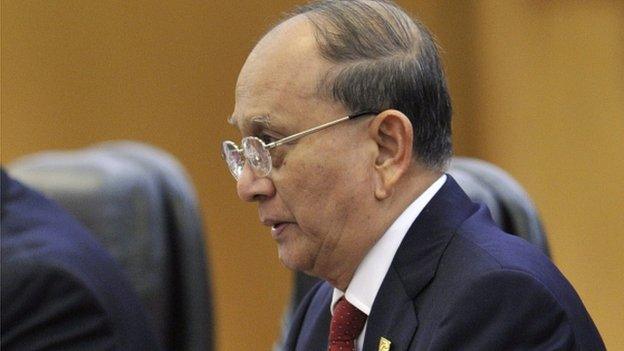Aung San Suu Kyi condemns 'unjust' constitution
- Published
Aung San Suu Kyi: "What we need is a healthy balance of optimism and pessimism"
Myanmar opposition leader Aung San Suu Kyi has said constitutional rules which bar her from running for president because her sons are half British are "unfair, unjust and undemocratic".
At a news briefing with US President Barack Obama in Yangon, she said the reform process in the once military-ruled nation had hit a "bumpy patch".
But she said it could be brought on track with international help.
Mr Obama said the reforms were "by no means complete or irreversible".
Myanmar, also known as Burma, moved from military to civilian rule in 2010 and is governed by a military-backed civilian administration.
Under Thein Sein, many political prisoners have been freed and media restrictions eased. The pro-democracy party of Aung San Suu Kyi, who spent years under house arrest, has rejoined the political fold and holds a small block of seats in parliament.
But critics have warned that reforms have stalled in recent months, as all eyes turn to 2015 when the next general election will be held.
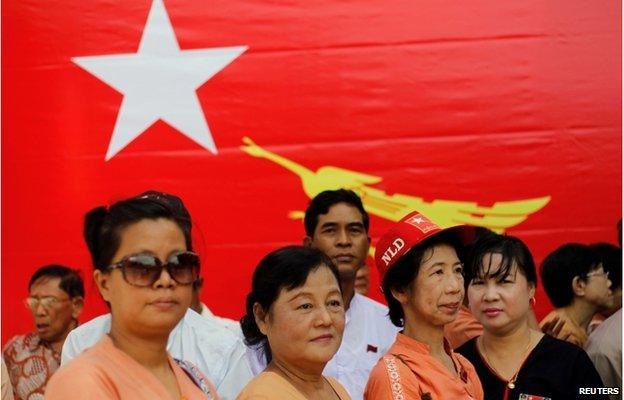
Aung San Suu Kyi's party, the National League for Democracy, won most of the seats contested in the 2012 by-elections
A clause in the new constitution states that anyone whose spouse or children are foreign citizens cannot run for the top job. Aung San Suu Kyi's late husband was British and her two sons are British citizens.
'Healthy balance'
Aung San Suu Kyi told reporters outside her home: "I always warn against over-optimism, because that could lead to complacency.
"Our reform process is going through a bumpy patch, but this bumpy patch is something we can negotiate with commitment, with help and understanding from our friends around the world," she said.
"What we need is a healthy balance of optimism and pessimism."
Mr Obama was in the Burmese capital, Nay Pyi Taw, on Thursday for an Asian summit where he held talks with President Thein Sein.
He said the process of reform was "by no means complete or irreversible" and added that the US "recognises the challenges ahead and cannot be complacent".
"I don't understand a provision that would bar someone from running for president because of who their children are. That doesn't make much sense to me," he said.
Ms Suu Kyi said the Burmese people supported the opposition's call to amend the clause, but added: "I don't think it's because they want me to be president, but because they recognise it's unfair, unjust and undemocratic."
Ms Suu Kyi's party, the National League for Democracy (NLD), won a landslide victory in the by-elections in 2012. It did not contest the November 2010 general election because of laws it said were unfair.
Mr Obama said he and Ms Suu Kyi had discussed ways of bolstering Myanmar's transition.
He also stressed that solutions had to be found in Rakhine state, where tens of thousands of people from the minority Muslim Rohingya group have been displaced by anti-Muslim violence.
- Published13 November 2014
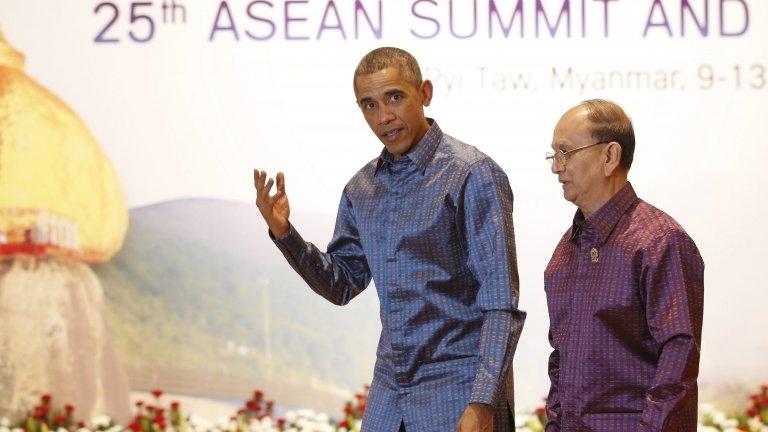
- Published12 November 2014
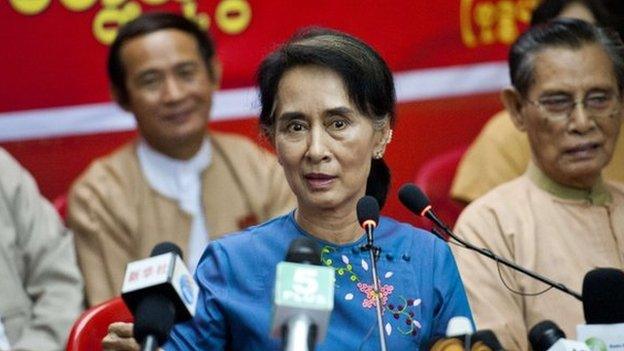
- Published8 July 2015
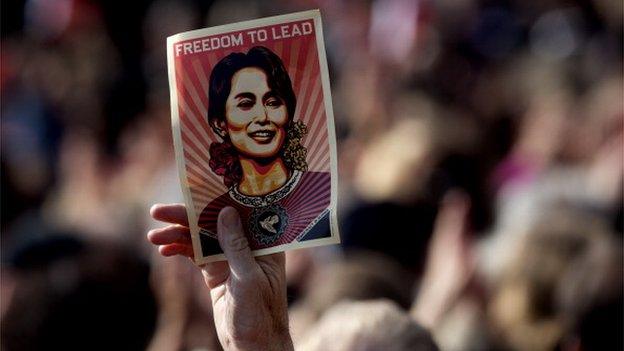
- Published6 December 2021
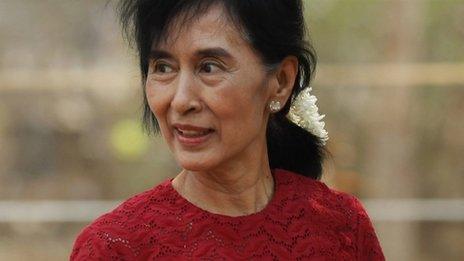
- Published10 November 2014
